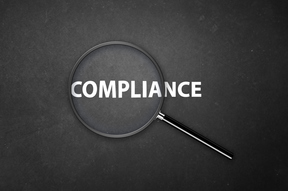 Once again the LSUC is asking its members for input, this time about the possible implementation of “compliance-based entity regulation”. So, what is it? Why should you care? And how will it affect you? According to a consultation paper prepared by the related LSUC Task Force, “compliance-based entity regulation” refers to “the proactive regulation of the practice entity through which legal services are delivered”. From what I gather, in the most basic terms, this means that the LSUC wants to start regulating firms (in addition to individual lawyers) in order to help prevent lawyers from messing up, instead of just dealing with lawyers after they have messed up. Makes sense to me. But what will law firms (or “entities”) be required to do? Clearly, the LSUC will need to find the proper balance between regulating the individual lawyer and the legal entity. Practice Management System / Ethical Infrastructure Entities would be required to implement certain “practice management principles” through a “practice management system” or an “ethical infrastructure”. What does that mean? Basically, firms are going to have to put in place policies and procedures to help their lawyers behave. The Task Force is considering the following "principles":
Proof of Compliance? The law firms would have to demonstrate to the LSUC that they have implemented the above principles in their practice. However, they would have flexibility and autonomy in the implementation process. For example, a firm would have to show that it has a policy or procedure in place to deal with conflicts of interest, but the LSUC would not dictate what that policy would be. It does not appear that the burden on the entities (which will likely include solo and small firms) is too onerous. I would suspect that firms already have most of these policies in place. On February 8th the LSUC broadcast a webinar on this topic from 5-7pm, but I was only able to catch the first 30 mins (it wasn’t the most convenient time as it was right smack in the middle of kids’ homework, bath, and bedtime, etc., but I digress). The speakers that I managed to hear were quite clear that the approach was not going to be “one size fits all” and that a version of the compliance-based entity regulation that might apply to sole-practitioners and small firms would likely be different from the approach for medium to large firms. [Update: The webinar is now on youtube.] Other questions in the consultation paper include to which entities this new regulation should apply; whether entities should be registered with the LSUC; and whether there needs to be a designated practitioner at the entity that would have certain regulatory responsibilities.The paper also summarizes the positive impact of proactive regulation in other jurisdictions such as Australia and England and Wales. If you feel strongly about this topic, either for or against, or simply want to comment on it, I suggest you review the paper and questions and provide your input by the deadline of March 31, 2016. The full consultation paper can be found here.
2 Comments
2/23/2016 04:59:41 am
Law firms have their own specialty when it come to services that they can offer though they may have working knowledge on all legal aspects.
Reply
5/9/2018 11:26:15 pm
I totally disagree with this. Law firms I think have their regulations in place that can solve this issue.
Reply
Your comment will be posted after it is approved.
Leave a Reply. |
Erin C. Cowling is a former freelance lawyer, entrepreneur, business and career consultant, speaker, writer and CEO and Founder of Flex Legal Network Inc., a network of freelance lawyers.
Categories
All
Archives
April 2022
|
|
(C) 2014-2024 Cowling Legal. All rights reserved.
|
Please note I do not represent legal clients of my own and I am no longer taking on freelance lawyer projects for other lawyers at this time.
Information on this website does not constitute legal advice and is for informational purposes only. Accessing or using this website does not create a solicitor-client relationship. See website Terms of Use/Privacy Policy. info@cowlinglegal.com
3080 Yonge Street, Suite 6060 Toronto,ON M4N 3N1 (appointment only) |






 RSS Feed
RSS Feed
